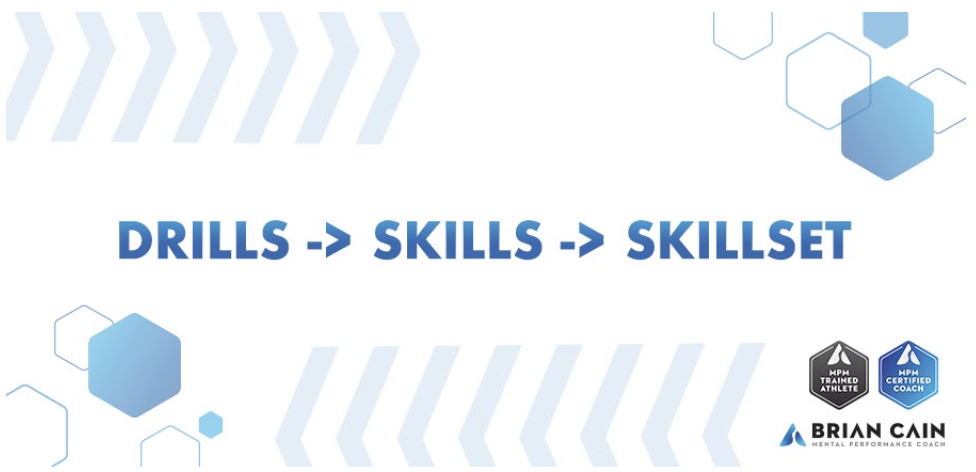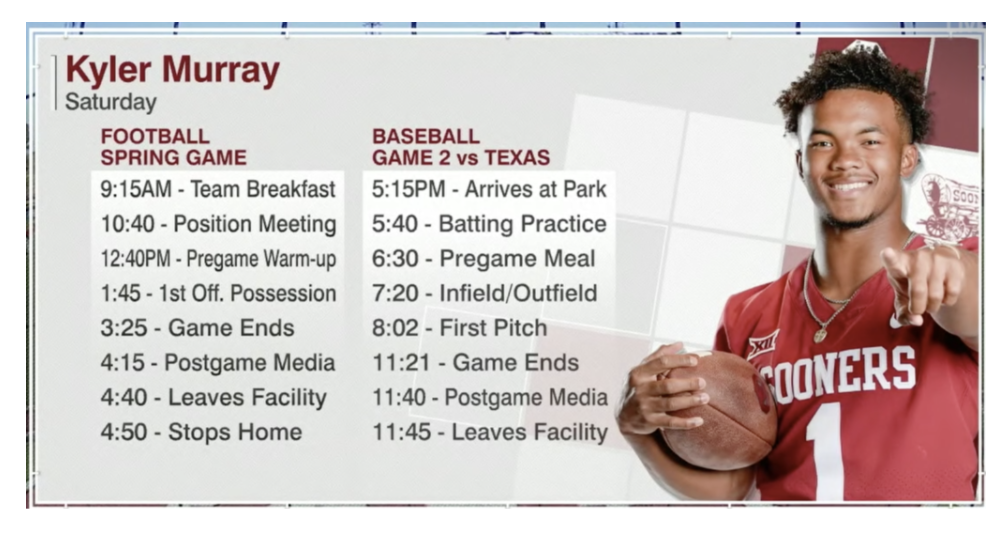Why what you don’t know about Mental Performance Mastery (MPM) is holding you back from your true potential (and what to DO about it)
“Elite performance in any arena is 90% mental, yet most competitors work on the mental game less than 10% of the time in their training. Mental Performance Mastery (MPM) training is the missing link in elite performance.”
Brian Cain, MPM
You’re a competitor in pursuit of elite results.
You want to win and want to win every time.
If you’re reading this, it’s because you want more. You want more results in your performance and you want more out of yourself and in your life and the lives of those who you lead.
Unfortunately, as competitors we often get tricked into thinking that to get more, you have to do more or work harder.
That’s just NOT the whole story… NOT even close.
If you work hard at the wrong aspects of your craft, have poor technique or fail to work on your mental game, it’s like sprinting south when you want to go north. You are working hard, just NOT headed in the right direction. If you do more of the wrong type of training, with the wrong type of thinking, you simply take yourself further away from your desired destination and goals.
Trust me — I LIVED this as a collegiate baseball player at The University of Vermont. It’s a huge part of why I am so motivated and committed to coaching and mentoring you on the 10 pillars of mental performance mastery, the 10 skills of mental toughness you must have to compete and win at the highest level.
I want to help you avoid the mistakes that I made, and the painful mistakes that thousands of other elite performers whether it be athletes, coaches, teachers, executives I have worked with have made and will continue to make unless they get the proper MPM training and develop the elite mindset, routines and skills they need to win.
Working hard at the wrong things doesn’t work.
If you go all out, empty your tank each day and are still not getting the results you want, you’re probably just working hard rather than working hard and working smart. You’re probably working hard at the wrong things with the wrong mindset and this cycle will continue to DRIVE YOU NUTS!
Look, if you want more, you have to BECOME MORE. You become more by doing the right training to develop the right mindset with a coach who has been there and done that with others who are after the same goals as you so that you can learn from his or her experience and expertise.
If you were to have heart surgery, would you ever go to a doctor who had no experience, a doctor that had done only a few surgeries, had a podcast about surgeries, cool insta pics of heart surgeries or a great YouTube Channel, but had not done at least a few hundred surgeries?
NO WAY!
You’d find the doctor with the most experience and a proven track record of success. The doctor who had dedicated his or her life to being a heart surgeon and was busy getting results. While others talked the talk, this doc was walking the walk.
Well, in the busy and noisy world of MPM coaching, mental toughness training and mindfulness or elite mindset development, that’s me. I’ve been “walking the walk” for the last 20 years and now it’s time to do some talking and provide you with what I have learned so you can get the results you are looking for.
My name is Brian Cain, MPM, and I am the luckiest person in the world. I truly believe that. I get to coach and train some of the top coaches, athletes, teachers and executives in the world on how to develop the 10 pillars of mental performance mastery you must have to compete and win at the highest levels of competition.
These 10 mental pillars, when combined, create the skill set of Mental Toughness or what I call the skillset of “Mental Performance Mastery (MPM).” Let me draw this up for you and put it into a coaching context similar to what you might already be familiar with from coaching of physical skills training for your sport or career.
As an athlete you do physical drills to develop the skills you need for your sport, and when you combine all the skills you need for success in your sport, we call that combination of skills a skillset.
For example, if you are a quarterback, you need to have the skills of (1) arm strength, (2) accuracy and (3) quick feet, among others. How do you develop arm strength, accuracy and quick feet? Well… you do drills. Ladder drills, for example, to help you develop quick feet.
When combining those three skills, you get part of the skillset that it takes to be a good quarterback.
Mental skill development follows the same process as physical skill development.
In my MPM Coaches Certification Course and 30 Days to MPM for Athletes Program I outline the specific drills you can do to develop the skills you need to arm yourself with the mental performance mastery skillset so that you can compete and train those you lead to compete and win at the elite levels of performance.
If you have ever wanted to develop mental toughness in yourself or those you lead but didn’t know what to do, where to start or how to do it, you’re in the right place. This is what I do for a living — and get paid well to do it — because my coaching and training system gets my clients the results that they’ve been missing. Clients like GSP, Carp, C-Will and Missy.
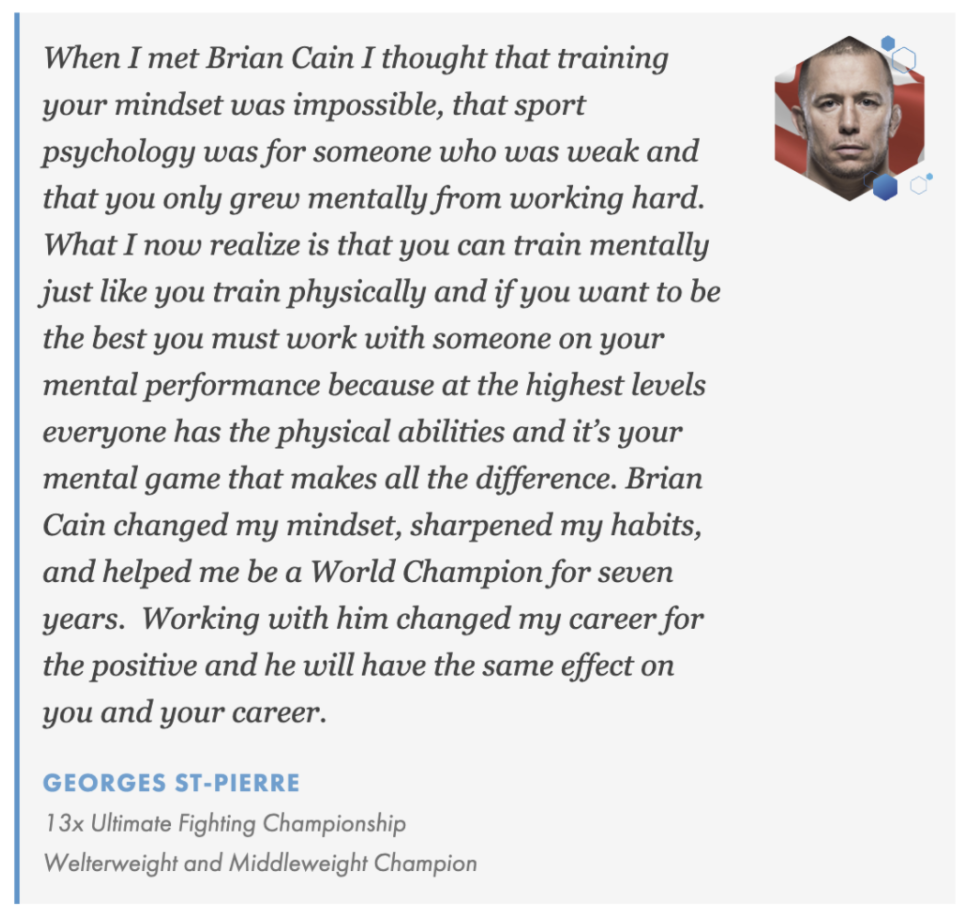
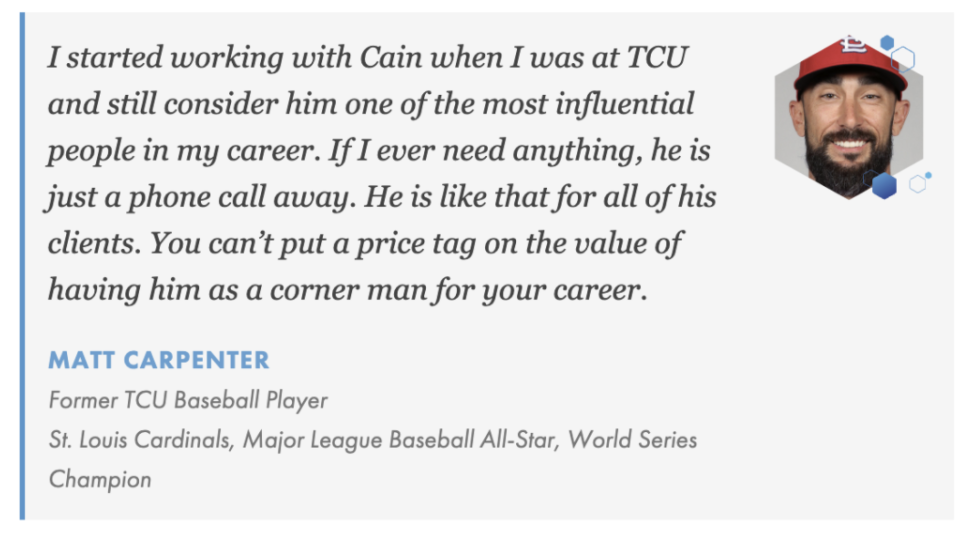

My MPM training programs have been used by six UFC world champions; more than 900 Major League Baseball draft picks; three Cy Young Award winners; NFL Most Valuable Players and Rookies of the Year; Heisman Trophy winners; rodeo world champions; multiple Olympic medalists; over 10 NCAA National Champions and so many high school state champions that I’ve lost count.
I don’t share this with you to impress you — that’s not what this is about. I share this to impress upon you that my 10 pillars of MPM training system WORKS when you work it. It works for real athletes, real coaches, real executives and real competitors just like you.
All of what I teach you in this program I learned from working with these elite performers over the last 20 years, I am forever indebted to them for allowing into their inner circle to be a part of their experience.
My training system worked for them, it will work for you if you are willing to do the work. You can develop the mental toughness and elite mindset needed to take your competitive performance and training to the next level — just like they have.
These elite performers understand that you can develop mental toughness and mental performance mastery just like you develop the physical skills needed to perform your craft. They understand that these 10 pillars of mental performance mastery or the 10 essential mental skills are the missing link in all of athletic performance.
So let me give you the exact skills I help my clients develop to build the MPM skillset.
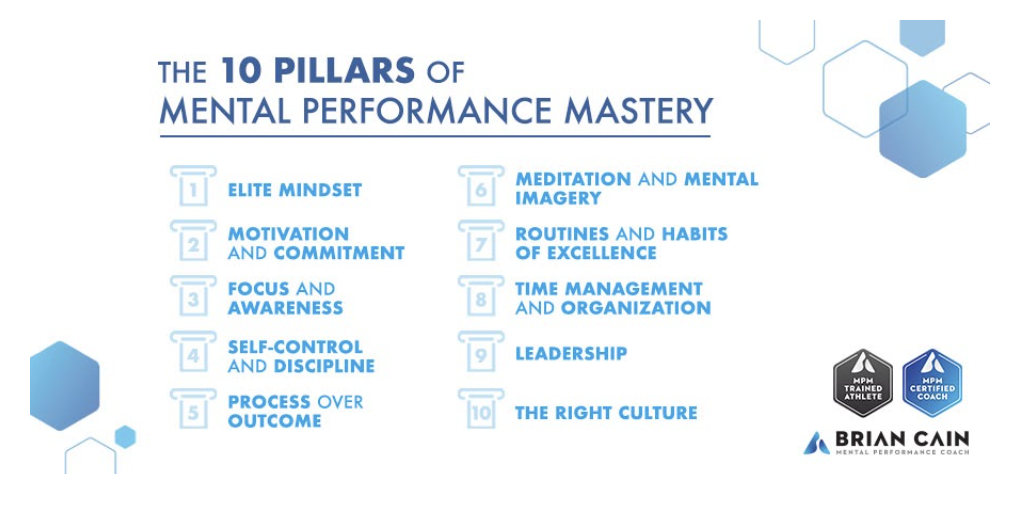
PILLAR #1: ELITE MINDSET
Without the right mindset, you will continue to struggle with doubt, thinking you “just don’t have the mental toughness” needed to reach your full potential. As you develop an elite mindset, you will start to see setbacks — things you used to think of as “failure” — as an opportunity for growth, and that makes a HUGE difference.
As you learn to grow and train your mindset, you will finally be able to blast through mental barriers that have held you back and to realize your true potential.
PILLAR #2: MOTIVATION AND COMMITMENT
No one is able to reach big goals or max out their potential without high levels of motivation and commitment — this is something we know. When adversity comes knocking — as it always does — the level of motivation and commitment you have will largely determine whether you push through and stick with it, or whether you give up.
By developing the SKILL of motivation and commitment, you can develop the grit needed to stick with it even when things get hard and you don’t feel like it.
PILLAR #3: FOCUS AND AWARENESS
Distractions, negative self-talk, and letting mistakes get to you are a sure way to derail performance. People who succeed don’t do so because they somehow evade trials and challenges. They succeed because they develop a SKILLSET that allows them to overcome the challenges and trials they face — and focus and awareness comprise a crucial component of helping you do that.
With practice, you CAN display a highly trained level of present-moment focus and self-awareness so you can better manage distractions, navigate adversity, and perform consistently at your best and shine your brightest when it means the most.
PILLAR #4: SELF-CONTROL AND DISCIPLINE
Elite performance requires hard work and dedication. There’s no way around that. Similarly, the pressures of competition are demanding — mentally, physically, and emotionally.
When you begin to intentionally and consistently train self-control and discipline, you will notice that you are better able to:
- Refocus when facing the inevitable obstacles (having a bad performance or bad game, battling nerves before a big event, hearing negative comments, expectations of others, parents, etc.)
- Calmly evaluate different challenging scenarios and make the most effective decisions. As the self-control and discipline “muscles” strengthen, expect to be able to make objective decisions under pressure, rather than being run by emotion.
- Embrace the process — good and bad — as opportunity for growth and keep a neutral mindset so you can be in control of yourself and then control your performance.
PILLAR #5: PROCESS OVER OUTCOME
As an elite performer, one of the biggest battles you face is this: finding the energy and initiative to do the day-to-day, mundane tasks necessary to reach your goals, even when you don’t feel like it.
By developing the process over outcome skillset, you can redirect focus to what is within YOUR inner locus of control — and drive the actions needed to achieve the desired outcome. This allows you to develop an appreciation of focusing on what you can control, letting go of what you can’t, and aiming for daily improvement.
PILLAR #6: MENTAL IMAGERY AND MEDITATION
Whether we’re aware of it — or not — the mental images we create and carry around (both positive and negative) have a direct impact on physical and mental performance.
When you begin to train the skillset of mental imagery and meditation, you will notice that you are better able to stay calm under pressure and focus on the present task, rather than getting caught up in the past or future. You will also increase your confidence through an advanced form of preparation that your competition doesn’t even know exists.
PILLAR #7: ROUTINES AND HABITS OF EXCELLENCE
After nearly two decades of working with the world’s top coaches, athletes, executives and performers, I can conservatively say that a good 50% of elite performance and goal achievement happens OUTSIDE of workout techniques, fundamentals, or any other physical element.
Consistently performing at a high level requires the ability to modify behavior and develop the structure needed to execute the plan. High performers know the power of routine — they know how to build and break habits, and they have a certain amount of structure guiding what they do each day.
Those who fly by the seat of their pants or let their feelings dictate what they will do and don’t do are destined to fall short of their potential.
PILLAR #8: TIME MANAGEMENT AND ORGANIZATION
The more automated and organized one’s day is, the more self-discipline, energy, and focus there is to direct toward the most important things. There is a direct correlation between time management and your ability to exhibit more willpower and show up for a competition or workout and be at your best.
Every decision made each day is like a “withdrawal” from your bank account. And on the flip side, every decision put on automation, requiring minimal mental thought or energy, is like a deposit.
Effective time management preserves energy and focus for the things that REALLY matter. Knowing what your ideal day and ideal week look like give you the best chance to have one. If you don’t know what your ideal day or ideal week looks like, you simply can’t have one.
Here’s an example of what I’m talking about, mapping out a day in advance so you can be where your feet are and give your best to the task at hand. This is an example of a daily schedule of Kyler Murray when he was playing quarterback on the Oklahoma football team and centerfield on the Oklahoma baseball team, ON THE SAME DAY.
Kyler is the only athlete ever to be selected in the first round of the MLB Draft (9th overall in 2018) and NFL Draft (1st overall in 2019). This strategy worked for him and it will work for you.
PILLAR #9: LEADERSHIP
Elite performance is a team effort. In order to help your team reach its full potential, you have to work on becoming a more effective leader. Learning to become a better leader creates the opportunity to take your success — and the success of those around you — to greater heights than ever before.
Many teams will fall short because their leadership is “coach fed”, top down. Your team will succeed because it will be “player led”… led from the inside and one of those key players is YOU and those you lead.
PILLAR #10: THE RIGHT CULTURE
After working with the world’s top programs — in every sport and at nearly every level — I noticed something: The best of the best do things differently from the rest of the pack. There is a championship culture within elite-performing teams that dictates how they treat each other, how they respond to adversity, and their ability to consistently perform at a high level regardless of the competition, pandemic or circumstance.
As an elite performer, it’s your job to establish the right culture personally and work to establish this collectively with your team.
Your Next Step…
Rather than viewing these as 10 isolated skills, think of them as being complementary to each other. They integrate together, overlapping seamlessly to create mental performance mastery and give you a significant competitive advantage. In my future articles and podcasts I will continue to help you take the concept of mental performance from the clouds to the dirt, so to speak.
I want to help you move from just talking about mental toughness to giving you very specific, practical and actionable strategies you can use on a daily basis so you can create your own personal step-by-step process for developing the mental performance skills you need to perform at the highest level and get the results that you’ve been missing.
ATHLETES: What YOU should do now…
Want to learn how to be the most mentally tough athlete you know? Join my 30 Days to Mental Performance Mastery for Athletes Program.
If you found this article helpful and you’re interested in more cutting-edge mental performance strategies as an athlete, my 30 Days to Mental Performance Mastery for Athletes Program is for you.
In this program, I’ll show you how to:
- Compete with unshakable confidence each and every time you step into the arena
- Perform at your best when it means the most—on a consistent basis
- Create the elite mindset, routines, and habits of excellence you need to reach your potential and get the most our of your ability
Athletes, Click Here To Get Started With My 30 Days to Mental Performance Mastery Program Today!!!
COACHES: What you should do now…
Want to learn more coaching strategies to master the mental side of performance? Join my COACHES INSIDERS LIST and I’ll keep you updated on my next Mental Performance Mastery Certification
If you found today’s video helpful, and you’re interested in more cutting-edge mental performance coaching strategies, the MPM Certification is for you.
Inside the course, I’ll show you how to:
- Get your athletes to perform their best when it means the most by using a SYSTEM to create an elite mindset.
- Compete at a higher level, more consistently—while managing distractions and adversity—by establishing the right routines.
- Create the championship culture you need to develop elite athletic leaders and cultivate a clear vision that keeps everyone motivated and juiced up.
Drop your info below to learn the systems and secrets I use to help the top coaches in the world compete at an elite level—year after year.


